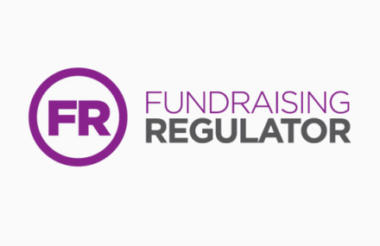What are the odds that fundraising regulation will be part of the Charity Commission's remit within the next five years? Place your bets, says Stephen Cotterill.
The announcement of Gerald Oppenheim as the new permanent chief executive of the Fundraising Regulator at the end of last month comes as the organisation is mid-way through its third year. Not entirely unexpected, the appointment hints at continuity and stability, with the new chief seen as a "safe pair of hands", having been with the organisation from day one and possessing a long charity sector pedigree.
The regulator as a whole appears to have entered a period of relative calm, having persevered through a series of teething problems including funding and levy issues, as well as establishing itself within the community as the new arbiter of the Fundraising Code of Practice and launching the Fundraising Preference Service. Oppenheim's appointment fits well with this stage in its evolution.
Created in the wake of several high-profile scandals and on the recommendation of Sir Stuart Etherington's review in 2015, the regulator's initial remit was put to the fundraising house in order – "to strengthen the system of charity regulation and restore public trust in fundraising".
Initially, there seemed to be an element of knee-jerk reaction to the adverse climate, involving the rapid dismemberment of the regulator's predecessor, the Fundraising Standards Board, and the "interim" nature of the new organisation's executive. It was a swift and high-profile decision not unfettered from political vested interests at the time.
Persistent challenges
Persistent challenges have included the struggle to entirely recoup the necessary funding through the levy (the Fundraising Regulator is operating on roughly £300k less than the original budget estimations - although these have been revised down) and limited resources. Moves to lessen the number of reports on investigated cases it produces could be underpinned by a need for greater efficiency or simply cost-cutting.
However, the regulator has worked hard to establish itself within the fundraising community and although there is still a long way to go in restoring public trust in the sector, the political urgency appears to have waned to some extent.
This invites the question of whether the regulator is nearing the end of its initial intended purpose – i.e. to demonstrate that the sector was taking allegations of poor practice seriously and to take concrete measurable steps to correct this. That is not to say a regulator will not be needed moving forward. The inherent issues with fundraising are persistent, but there does seem to be a sense that, within the next few years, the regulator's function could be better served as part of the Charity Commission.
If this were to happen, however, funding would continue to be an obstacle... unless it shifted to a statutory model. And there's the rub.
It remains to be seen whether this is the longer game plan, but its hard to shake off a suspicion that there could be a gradual shift in the regulator's core functions and therefore a lessening of a need for it to exist in its current form, despite the appointment of a permanent chief executive.









